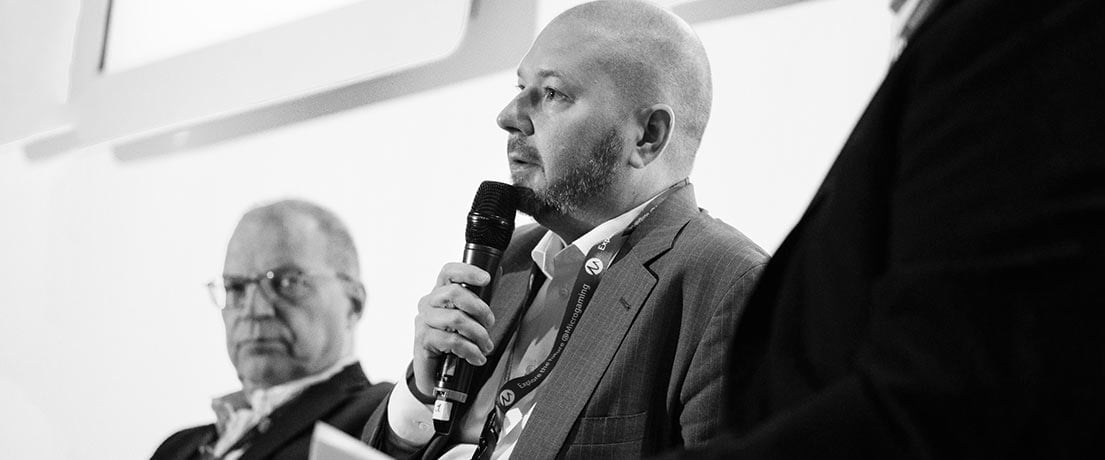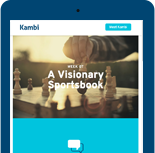

The recent legislation introduced by lawmakers in New York to legalise and regulate sports betting in the state should not be viewed in isolation.
It is the latest step in a growing movement to legalise the vertical, and comes after similar attempts in New Jersey and California. Of course, the journey towards a regulated US sports betting industry will be a long one, and there are still many barriers to overcome, not least a federal prohibition dating back to 1992.
However, I strongly believe that the appetite and will, both politically and among the wider population, is there, and that it is only a matter of time before Americans outside of Nevada and a handful of other states are permitted to legally wager on sports.
As such, it is time for lottery operators to sit up and take notice, or risk missing a once-in-a-generation opportunity when regulation is finally introduced in New York and beyond.
Engaging with the process
The proposed New York regulation is a prime example of why lottery operators need to engage. While the proposed legislation includes several worthy provisions, not least a commitment to use proceeds to aid state education, it also restricts betting to racetracks, simulcast theatres and casinos.
There is no mention of an online component, which for the time being looks to be a separate battle entirely. While it is positive that the topic is being discussed, we are still a long way from strong, practical legislation.
This should both encourage and concern US lottery operators. They only need to look at their colleagues north of the border in Canada, as well as in Europe, to see how provincial and state lotteries can grow revenues through sports betting.
When regulation does come, whether in New York or elsewhere, I believe lottery operators should be central to the process. It is time to deliver a safe, secure and regulated sports betting offering to US customers, and few are better placed to provide such a service as existing lottery operators.
Lottery’s opportunity
These operators already have a track record of delivering responsible gaming to users, and in partnership with licensed providers, there is no reason this offer shouldn’t be extended to sports in a similar manner to how it is in regulated markets around the world.
This process will be a steep learning curve. The prohibition on sports betting in the US has left the sector lagging behind its European counterpart. Fortunately, many of the innovations and lessons Kambi has learned in Europe will have applications stateside.
At Kambi, we understand the challenges of operating in strictly regulated jurisdictions. It is vital that operators have access not only to a flexible platform, but also the expertise and know-how that comes with a full turnkey sports betting service.
The power of partnerships
This means entering strong partnerships that allow for the co-creation of a world-class user experience, drawing upon both the technical platform and service expertise.
Many lottery operators are also in search of full-service solutions, which is why Kambi recently signed an MoU with Novomatic Lottery Solutions (NLS) with the mission to provide a powerful full-service gaming solution to government regulated lotteries around the world.
The service will combine Kambi’s state-of-the-art sports betting service with NLS’s market leading lottery platform, providing a one-stop-shop for operators.
We recently showcased this integrated offering at the World Lottery Summit in Singapore, and we will once again be displaying our innovative retail solution at stand S2-110 at ICE, which offers a range of self-service terminals, over-the-counter and bring-your-own-device options for operators, all backed up by Kambi’s digital infrastructure and expertise.
Industry game-changer
Regardless of whether this latest New York bill progresses, the appetite for sports betting in the US is undeniable. You only need to pick up a newspaper and read the sports pages to see that many Americans are already speaking the language of sports bettors.
And the remarkable surge in popularity that daily fantasy sports has enjoyed over recent years is only an indication of how popular the real thing might be should it finally be legalised and regulated.
Meanwhile, professional sports bodies have softened their view on the prospect of legalised sports betting in recent years. In 2014, NBA Commissioner Adam Silver said it was “inevitable” that more states would ultimately legalise sports betting, and that the NBA would participate in the process.
If the lottery vertical is to continue to thrive and ensure players are not lured offshore, it must expand its product offering to remain competitive. This message needs to be conveyed clearly to lawmakers across the US, and it must be stressed that lottery operators should play a central role in this process.
The US market will ultimately be a game-changer for global sports betting, and while we may still be some time away from full legislation, the lottery sector must begin planning for this future.
First published on 22nd January 2017 by PGRI Magazine












